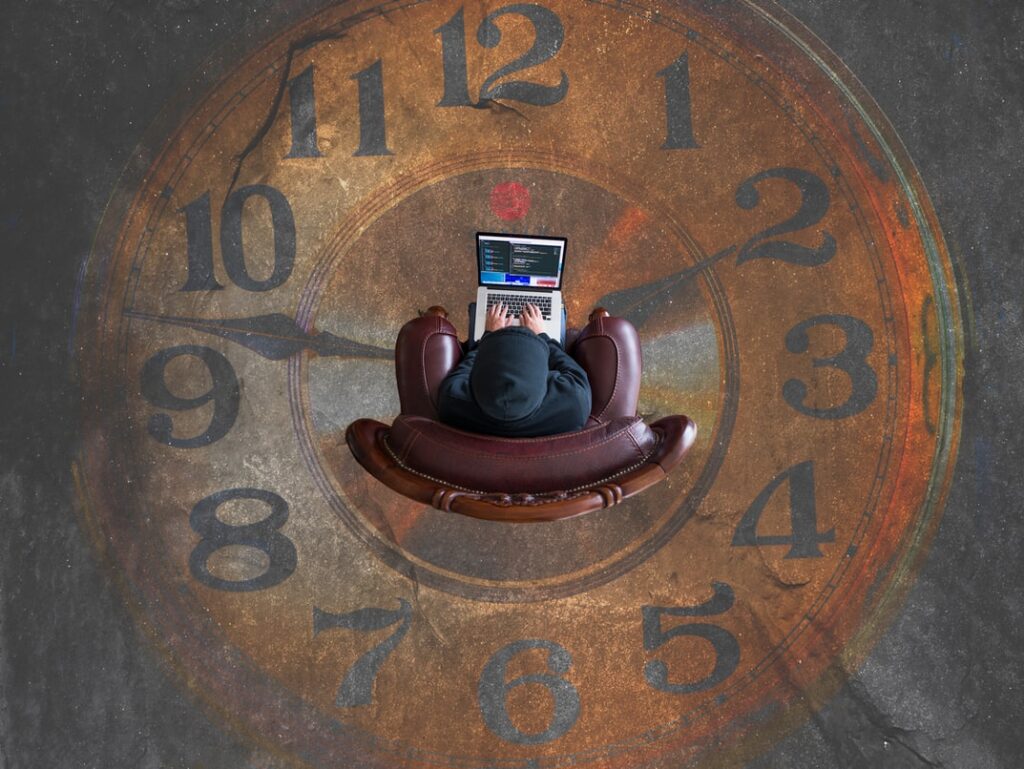If you can do something tomorrow, why do it now? All of us put things off from time to time, and there’s nothing wrong with adjusting your plans a little and taking a break if you know that you’ll be able to get everything done later. However, there is a difference between flexible planning and procrastination.
Procrastination is a very common problem, and people often mention it when talking about productivity, time management, and self-discipline. Procrastination is a self-control issue, and it can negatively affect people’s lives in many ways.
Some people want to stop procrastinating, while others are not sure whether or not procrastination has anything to do with their lifestyle. Do you procrastinate, or are you just lazy? First of all, we should figure out, what does “procrastinate” mean?
People who constantly avoid important tasks and seek distractions are habitual procrastinators. Some of these people are perfectionists, and some of them experience anxiety. Procrastination can be rooted in different issues, including low self-esteem and depression.
It’s also important to understand the difference between procrastination, laziness, and executive dysfunction. In this article, we will consider the phenomenon of procrastination in more detail, figure out what can cause it, and share some tips on how to overcome it.
What Procrastination Is

Simply put, procrastination means postponing your actions and decisions. For example, one may spend hours on social media or binge-watch TV shows despite having a big project. When people procrastinate, they avoid tasks that should be completed now and decide to work on them later instead.
As a result, procrastination can have a significant negative impact on one’s productivity. Chronic procrastination forces people to do all the important tasks at the last moment, so it eventually leads to lots of stress and exhaustion.
Procrastination has been studied by researchers for many years. Research data shows that procrastination negatively affects school and college students’ grades, and it’s also linked to a lower salary among adults.
Given that it’s impossible to avoid important activities forever, procrastination easily turns work into a very stressful experience. As a result, it often contributes to the development of many mental and physical health issues.
Procrastination, Laziness, and Executive Dysfunction

While procrastination may look like laziness, it’s important to keep in mind that procrastination can be completely unintentional. While you may suddenly realize that you’ve failed to do your job and spent too much time on the internet because of procrastination, laziness is rather an intentional decision not to do something because you don’t want to.
Besides, there is a difference between procrastination and executive dysfunction. Unlike procrastination, executive dysfunction is often associated with abnormal brain activity, and it can be caused by serious neurologic or psychiatric problems. For instance, executive dysfunction can be a result of brain trauma, dementia, schizophrenia, or drug use disorder.
In contrast, procrastination doesn’t mean that a person is unable to perform a certain action. When you’re procrastinating, you may not avoid doing something intentionally, but your mind may create distractions and roadblocks that will make it impossible for you to accomplish what you want.
Procrastination can be rooted in various mental health issues so if you have a hard time trying to figure out how to overcome procrastination, the best solution might be to consider therapy. A licensed therapist can help you understand the causes of your procrastination and change your unhelpful thinking patterns so that you can get things done.
Why Do I Procrastinate? What Can I Do About It?

Here are some of the most common reasons why people procrastinate and a few tips that will help you stop procrastinating.
1. Perfectionism

Although perfectionism may seem to be something opposite of procrastination, the truth is that it’s one of the most common reasons why people cannot get things done. People who don’t tolerate any imperfections and mistakes often set unrealistic goals and have a hard time trying to meet their own expectations.
Perfectionism is all about “all or nothing” thinking so perfectionists may intentionally or unintentionally avoid working on something if they realize that they cannot achieve a perfect result.
It’s important to keep in mind that, no matter what you do, mistakes are unavoidable. Mistakes are an integral part of a growth process, and it’s impossible to get better results without making mistakes and learning from them. Therefore, make sure that your expectations are realistic, and don’t criticize yourself for making mistakes.
Low self-esteem

Procrastination is common among people with depression, and the reason is that depression often negatively impacts one’s self-esteem. A person may compare themselves to more productive people and experience self-deprecating thoughts. For instance, one may think that they’re not good enough to take on a certain project or perform a certain task.
As a result, a person with low self-esteem may procrastinate because important activities become associated with lots of stress and negative thoughts. Many procrastinators are also too dependent on external validation and may avoid some activities because they’re afraid of criticism.
In this case, it’s important to recognize the unhelpful thinking patterns and work on your self-esteem. The best solution is to talk to a licensed therapist who can help you figure out what factors negatively affect your self-esteem and provide the necessary emotional support.
Problems with focusing

Researchers link procrastination to difficulties with concentrating. For example, people diagnosed with attention-deficit hyperactivity disorder (ADHD) often cannot start working on their tasks because they cannot focus and ignore distractions.
If you have ADHD, which only affects 3% to 4% of adults, you should consider therapy to learn to focus. However, if you find it difficult to focus and keep wondering, “why do I procrastinate?” this doesn’t necessarily mean that you have ADHD.
Create a clean and comfortable workspace and make sure to eliminate any sources of distractions. For instance, you may use noise cancellation headphones and turn off notifications on your phone.
Allocate specific hours for work and don’t do anything else during this time. You may also set an alarm whenever you take a short break so that you can quickly get back to work.
Poor time management

Obviously, poor time management can create a lot of room for procrastination. If you fail to plan your work properly, you may not be able to properly evaluate how much time you need to complete a certain task and put off work until the last minute.
A great solution is to plan your activities based on smaller increments of time. For example, instead of planning your monthly or weekly workload, you may plan tasks for every day and note how many hours you’re going to work on something.
According to research, when people measure time with smaller units, they perceive events as happening sooner. As a result, such an approach can help you keep track of your work without putting it off.
Decision fatigue

Everything you do begins with a decision, and making a decision isn’t always easy. If you have too many options, for instance, when you have to complete too many tasks, deciding what you should do right now can make you feel nervous and trigger anxiety.
If you’re multitasking, decision fatigue can become overwhelming because of switching between tasks, which means making small decisions all the time. Proper planning can help you tackle procrastination and anxiety. The key to success is prioritization.
Write down all of your tasks and sort them by priority so that you won’t need to decide what you should do over and over again. Just move from more urgent and important tasks to less important and urgent ones so you can work in a straightforward way.
You can use the same approach not only for work but also in other areas of your life. For example, if you realize that you spend a lot of time trying to decide what you should wear or eat, you may rank your favorite food and outfits so that you will waste less time throughout the day.
Final Thoughts
People procrastinate for different reasons, and if you fail to get things done, that doesn’t mean that you’re lazy. Procrastination can be rooted in unrealistic expectations, anxiety, depression, and other mental health issues.
If you want to figure out why you keep procrastinating, therapy might be the best solution. If you don’t have enough time for in-person therapy sessions, keep in mind that you can always talk to a licensed therapist on online therapy platforms like Calmerry.
Learn more about the benefits of therapy and don’t hesitate to ask for help. If you figure out what slows you down, you will be able to improve your productivity and forget about the stress that always goes hand in hand with procrastination.

